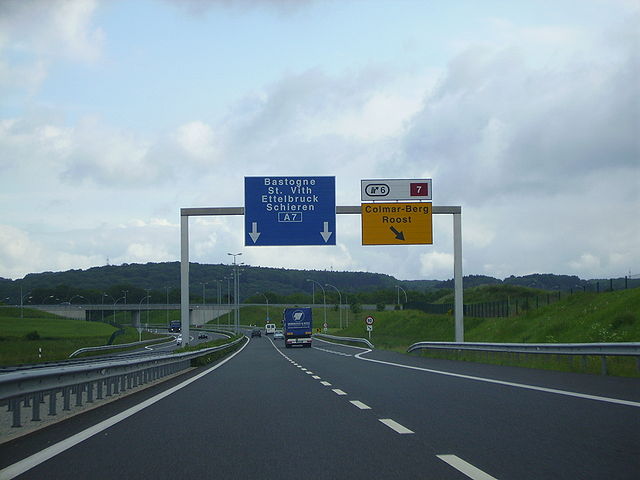Transport in Luxembourg is ensured principally by road, rail and air. There are also services along the river Moselle which forms the border with Germany. The road network has been significantly modernised in recent years with motorways to adjacent countries. The advent of the high-speed TGV link to Paris has led to renovation of the capital's main railway station while a new Schengen-only passenger terminal at Luxembourg Airport opened in 2017. Trams in the capital were reintroduced in December 2017 and there are plans for light-rail and/or tram-train lines in adjacent areas.
Luxembourg's A7 motorway
Veloh bike sharing Luxemburg
Moselle tourist boats at Remich
Luxembourg airport
Free public transport, often called fare-free public transit or zero-fare public transport, is public transport which is fully funded by means other than collecting fares from passengers. It may be funded by national, regional or local government through taxation, and/or by commercial sponsorship by businesses. Alternatively, the concept of "free-ness" may take other forms, such as no-fare access via a card which may or may not be paid for in its entirety by the user.
In 2020, Luxembourg became the first country to provide free public transport across its entire territory.
Tallinn's residents voted for free public transportation on 24 March 2012. This polling place was in a historic tramway Gotha G4-61






